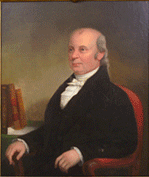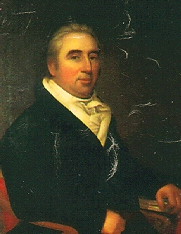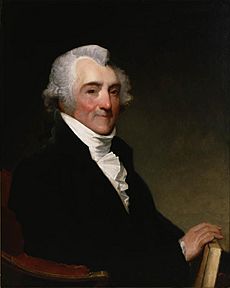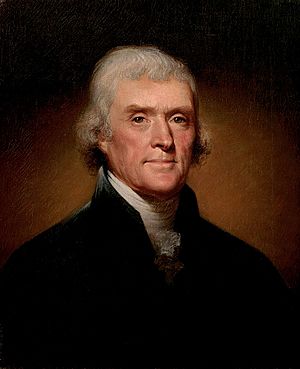Levi Lincoln Sr. facts for kids
Quick facts for kids
Levi Lincoln
|
|
|---|---|
 |
|
| Governor of Massachusetts | |
|
Acting
|
|
| In office December 10, 1808 – May 1, 1809 |
|
| Preceded by | James Sullivan |
| Succeeded by | Christopher Gore |
| 4th United States Attorney General | |
| In office March 5, 1801 – March 3, 1805 |
|
| President | Thomas Jefferson |
| Preceded by | Charles Lee |
| Succeeded by | John Breckinridge |
| United States Secretary of State Acting |
|
| In office March 5, 1801 – May 1, 1801 |
|
| President | Thomas Jefferson |
| Preceded by | John Marshall |
| Succeeded by | James Madison |
| 7th Lieutenant Governor of Massachusetts | |
| In office May 29, 1807 – May 1, 1809 |
|
| Governor | James Sullivan |
| Preceded by | Edward Robbins |
| Succeeded by | David Cobb |
| Member of the U.S. House of Representatives from Massachusetts's 4th district |
|
| In office December 15, 1800 – March 5, 1801 |
|
| Preceded by | Dwight Foster |
| Succeeded by | Seth Hastings |
| Personal details | |
| Born |
Levi Lincoln
May 15, 1749 Hingham, Massachusetts Bay, British America |
| Died | April 14, 1820 (aged 70) Worcester, Massachusetts, U.S. |
| Political party | Democratic-Republican |
| Spouse | Martha Waldo |
| Children | 10, including Levi and Enoch |
| Education | Harvard University (BA) |
| Signature | |
| Military service | |
| Allegiance | |
| Branch/service | Massachusetts militia |
| Battles/wars | Siege of Boston |
Levi Lincoln Sr. (May 15, 1749 – April 14, 1820) was an important American leader from Massachusetts. He was a lawyer and a statesman who helped shape the early United States. As a member of the Democratic-Republican Party, he worked closely with President Thomas Jefferson.
One of his most important roles was serving as Jefferson's first Attorney General. He also played a key part in events that led to the famous Marbury v. Madison court case, which is still studied today. Later, he served as Lieutenant Governor of Massachusetts twice. He even became acting Governor of Massachusetts for a short time after the previous governor passed away.
Contents
Levi Lincoln Sr.: A Key Figure in Early America
Levi Lincoln was born in Hingham, Massachusetts. He went to Harvard University and then became a lawyer. He set up his law practice in Worcester, Massachusetts. He was very involved in local politics and helped write the Constitution of Massachusetts in 1779.
He was a strong supporter of Quock Walker, a formerly enslaved person. Walker was trying to prove his freedom under the new state constitution in 1783. Lincoln also entered national politics when he was elected to the United States House of Representatives in 1800. Soon after, President Jefferson asked him to become the Attorney General.
Lincoln advised Jefferson on political matters, especially in New England. He helped his political party, the Democratic-Republicans, grow stronger in Massachusetts. He also worked on a group that settled land claims in Georgia. He gave advice to Jefferson about the Louisiana Purchase, a huge land deal that doubled the size of the United States.
After his time in Washington, D.C., he returned to Massachusetts. He continued to be active in state politics. He became lieutenant governor in 1807 but did not win the governor's election in 1809. He retired from politics in 1811. He even turned down a chance to join the Supreme Court of the United States because of his health.
Early Life and Education
Levi Lincoln was born on May 15, 1749. His parents were Enoch and Rachel Lincoln. His father first tried to teach him the trade of a blacksmith. However, Levi loved reading much more than working with metal. This led him to enroll in Harvard University.
He graduated from Harvard in 1772. After that, he studied law with Joseph Hawley in Northampton, Massachusetts. When the Battles of Lexington and Concord started the American Revolution, he joined the local militia. He marched with them to Cambridge, Massachusetts, to help surround British troops in Boston.
Lincoln did not stay in the military for long. He soon returned to Northampton and became a lawyer. In 1775, he opened his law practice in Worcester, Massachusetts. His business did very well because many other lawyers in Worcester were loyal to Britain and had left the city.
From 1775 to 1781, he worked as a court clerk and a judge in Worcester County, Massachusetts. He also served the town of Worcester in many different roles. In 1779, he was chosen to be part of the group that wrote the state constitution. During these years, Lincoln became one of the largest landowners in Worcester. He was also a founding member of the American Academy of Arts and Sciences in 1780.
A Lawyer for Freedom
In 1781, Levi Lincoln was one of the lawyers who worked on important cases about Quock Walker. Walker was a formerly enslaved person who wanted to claim his freedom. One of these cases, Commonwealth of Massachusetts v. Nathaniel Jennison, was very important. It helped establish that slavery did not fit with the new state constitution.
The judge in the case, William Cushing, based his decision on the constitution's words, "all men are born free and equal." However, Lincoln argued that slavery was wrong based on natural law and God's law. In 1781, he was also chosen to be part of the Continental Congress, but he decided not to serve. He was elected to the Massachusetts House of Representatives in 1796 and to the State Senate in 1797. He chose to serve in the Senate.
Serving the Nation: Attorney General
At first, Lincoln was a weak supporter of the Federalist Party. But over time, he became more closely linked with Thomas Jefferson's Democratic-Republican Party. He tried several times to be elected to the United States House of Representatives in the 1790s but lost each time.
In December 1800, he was finally elected to the House. However, his time there was short. On March 5, 1801, President Jefferson appointed him Attorney General. He held this job until March 1805. Jefferson chose Lincoln because his advisor, Albert Gallatin, said Lincoln was "a good lawyer, a fine scholar, a man of great discretion and sound judgment."
The job of Attorney General was part-time back then. So, Lincoln spent most of his time in Worcester. He worked to help the Democratic-Republican party grow. He often told Jefferson about political feelings in New England. He also wrote articles in newspapers to support Republican ideas. In 1801, he started a newspaper called the National Aegis. This paper was meant to promote Republican views and challenge Federalist ones.
During his time as Attorney General, the Democratic-Republicans gained control of most of Worcester's political offices. This happened even though much of Massachusetts was still controlled by the Federalists. Lincoln was often criticized in Federalist newspapers and even in sermons by powerful ministers. In response, Lincoln wrote a pamphlet in 1802 called Letters to the People, by a Farmer. In it, he criticized the Federalists for bringing politics into religion.
The Marbury v. Madison Case

When Jefferson became president, he quickly worked to fill his cabinet. He wanted James Madison to be his Secretary of State. But Madison was sick and did not arrive in Washington until May 1, 1801. So, Jefferson asked Lincoln to be the temporary Secretary of State. Lincoln served in this role from March 5 to May 2, 1801.
During this time, Lincoln was involved in events that led to the famous Marbury v. Madison case. This case was about whether courts could decide if a law was constitutional. Before Jefferson took office, President John Adams had issued many official documents called commissions. Some of these had not been delivered by John Marshall, Adams's Secretary of State. Jefferson told Lincoln (as acting Secretary of State) and later Madison not to deliver these commissions.
Some people who were supposed to receive these commissions, like William Marbury, sued the government. They wanted the Supreme Court of the United States to force the delivery of the commissions. As Attorney General, Lincoln was at the first hearing for the case. He was representing James Madison.
When the case was heard, Lincoln was called to speak by Marbury's lawyer. Lincoln chose not to answer some questions directly. He asked for time to think about whether he had to answer. The judges gave him time. When he returned, he answered most questions. But when asked what happened to the commissions, he only said he did not know if Madison ever got them.
Helping with Foreign Policy
Before Jefferson became president, the United States paid money to some Arab states in the Mediterranean Sea. This was to stop them from attacking American ships. By 1801, the United States Navy was strong enough to protect American ships. So, Jefferson refused to pay tribute to Yusuf Karamanli, the ruler of Tripoli. After this, the Tripolitans started attacking American merchant ships.
In a meeting in early 1801, Jefferson's cabinet discussed what to do. Someone suggested that the President declare war. Lincoln pointed out that only Congress could declare war. But the cabinet still wanted to take action. They decided to send a naval fleet to the area to protect American trade. Jefferson never officially asked Congress to declare war on the Barbary states.
In 1802, Napoleon wanted to sell the French territory of Louisiana to the United States. Jefferson was worried about buying such a large area. He also wondered if the Constitution allowed him to make such a big purchase. Lincoln suggested that the territory could be bought by simply adding it to an existing state. This would avoid needing a change to the Constitution. However, Jefferson and his other advisors did not agree with this idea. The Louisiana Purchase happened anyway, even with the constitutional questions.
Back in Massachusetts Politics
In 1804, Lincoln told Jefferson he would leave his job as Attorney General for personal reasons. He officially resigned on March 3, 1805.
Back in Massachusetts, Lincoln became active in state politics again. He was a member of the Massachusetts Governor's Council in 1806. The next year, he was nominated to run for Lieutenant Governor of Massachusetts. The Democratic-Republicans chose James Sullivan as their candidate for governor. Lincoln was chosen to run with him.
The election was a big win for Lincoln's party. They gained control of the entire state government. Sullivan and Lincoln were reelected in 1808. But Governor Sullivan died in December 1808. This meant Lincoln became the acting Governor of Massachusetts. In this role, he continued to support President Jefferson's policies. This was difficult because many people in Massachusetts, especially business owners, were Federalists and did not like Jefferson's policies.

Lincoln ran for governor on his own in 1809. But he was seen as too focused on his party's views. He also did not have the same friendly personality as Sullivan. His support for Jefferson's economic policies, especially the Embargo Act of 1807 (which stopped trade with Britain and France), hurt his chances. The Federalists, who had regained control of the Massachusetts legislature, attacked his support for Jefferson. He lost the election to Christopher Gore. The Federalists took over the Massachusetts government completely.
Lincoln was again chosen to serve on the Governor's Council in 1810 and 1811. In 1811, President James Madison offered him a job as a judge on the Supreme Court of the United States. But Lincoln turned it down because his eyesight was failing. Lincoln retired to his home in Worcester. He became very interested in farming. He studied agriculture and was the first president of the Worcester Agricultural Society, which started in 1818.
Lincoln was also a founding member of the American Antiquarian Society in 1812, along with one of his sons, Levi Lincoln Jr..
Later Years and Family
Levi Lincoln Sr. passed away in Worcester on April 14, 1820. He was later buried at the Rural Cemetery in Worcester.
In 1781, Lincoln married Martha Waldo. They had ten children together, though three died young. His oldest child, Levi Jr., and a younger son, Enoch, both followed their father into politics. Levi Jr. became one of the longest-serving governors of Massachusetts. Enoch became the Governor of Maine.
When Lincoln moved to Worcester, he bought a large piece of land near what is now the downtown area. His family later developed this land. Today, it is part of the Lincoln Estate-Elm Park Historic District. The Gov. Levi Lincoln House in Worcester is named after his son, Levi Jr. Because his family was so important in the city, many places in Worcester, like streets, buildings, and parks, are named Lincoln.
Levi Lincoln Sr. was also distantly related to Abraham Lincoln, who became the sixteenth U.S. President. They shared a common ancestor named Samuel Lincoln, who had settled in Hingham, Massachusetts, in the 1600s.
See also
 In Spanish: Levi Lincoln Sr. para niños
In Spanish: Levi Lincoln Sr. para niños
 | Percy Lavon Julian |
 | Katherine Johnson |
 | George Washington Carver |
 | Annie Easley |


